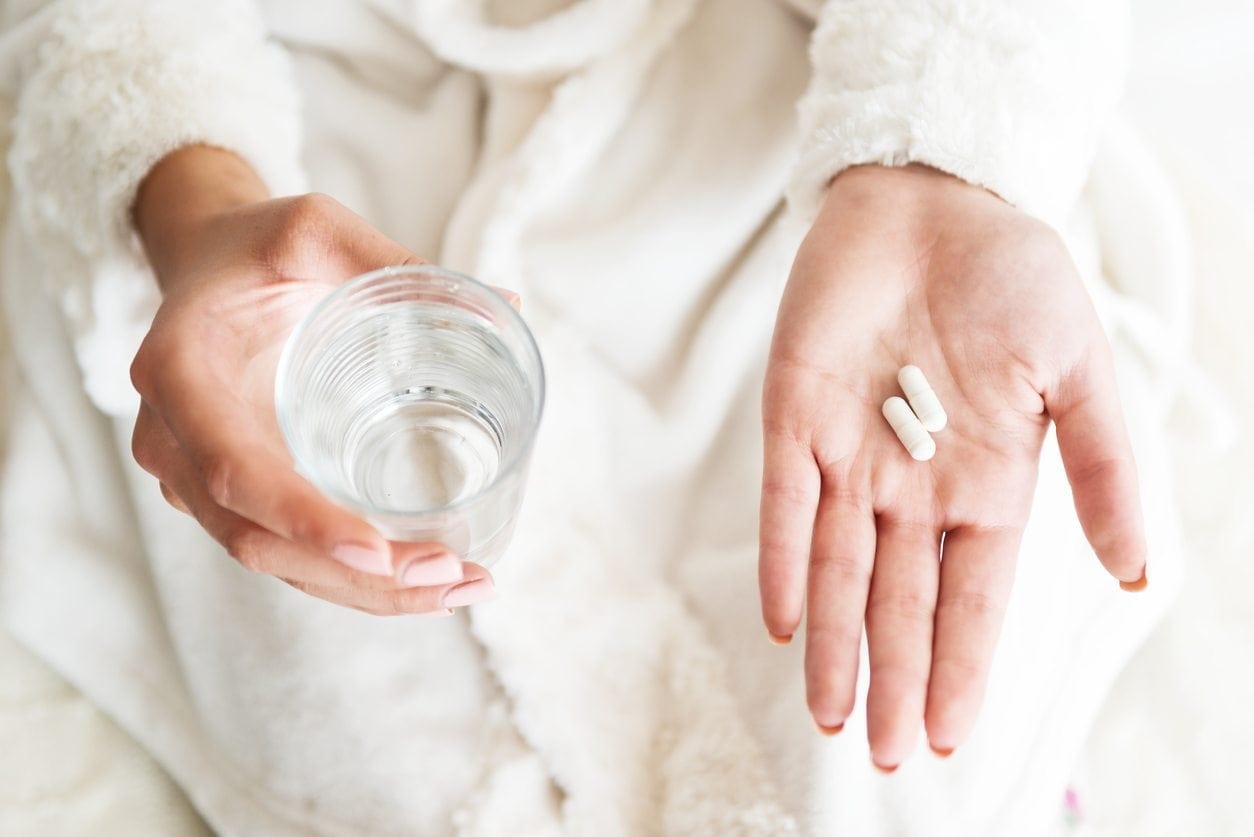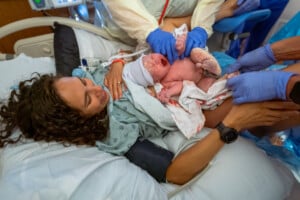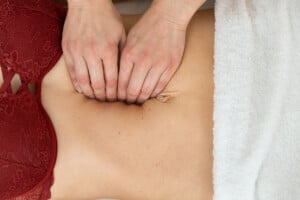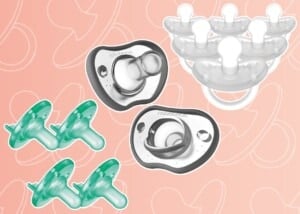Welcoming a new baby brings many changes, and while pregnancy often takes center stage in terms of nutrition, the postpartum period is equally important. Recovering from birth, balancing hormones, and adjusting to life with a newborn requires focused nutrition to support energy, mood, and (if you’re breastfeeding) milk production. This is where postnatal vitamins come in! Postnatal vitamins are a key tool to help moms feel their best by bridging any nutritional gaps during this unique time in their postpartum period. In this guide, we’ll explore what postpartum vitamins are, why they’re essential, and how to choose the best postnatal vitamins to meet your needs.
What Are Postnatal Vitamins?
You might be wondering, “What are postnatal vitamins,” and how are they different from my prenatal vitamins? Well, postnatal vitamins are specifically designed supplements that support a new mother’s recovery and nutrient needs after birth. Unlike prenatal vitamins, which focus on supporting the mother and baby’s health during pregnancy, postnatal supplements prioritize the nutrients needed for recovery, repletion, and milk production. Many women continue with their prenatal vitamins after giving birth, but postnatal multivitamins often contain additional nutrients that can address specific postpartum needs, such as supporting mental well-being, replenishing lost nutrients, and boosting energy.14,15,16
What To Look for in Postnatal Vitamins (And Buying Tips)
Choosing the right postnatal multivitamin or postpartum supplements can feel overwhelming, especially with so many options on the market. Here are some specific nutrients to look for and factors things to consider when buying a postpartum supplement:
Nutrient Needs
These are some of the most important nutrients to look for when choosing the best postnatal vitamins:
- Iron: You need iron to support your energy levels, especially if you experienced significant blood loss during childbirth.1
- Calcium and vitamin D: These help maintain your bone health while breastfeeding.2 Also, women who are breastfeeding can meet their infant’s daily vitamin D requirement by consuming a daily dosage at or above 4,000 IU.17
- Omega-3 DHA: This is needed for brain support and is particularly beneficial for breastfeeding moms since it can enhance the quality of breastmilk.3
- B complex vitamins: These provide energy and mood regulation.4
- Folate: Folate is important for cellular repair and mood regulation.5
- Vitamin A and E: These vitamins are necessary for immune health and skin recovery.6,7,8
- Iodine and choline: These nutrients are especially important for breastfeeding moms, as their nutrient needs increase during lactation to support thyroid function.18,19
Buying Tips
When buying a postnatal vitamin, here are some additional things to consider:
Ingredient Quality
Many high-quality brands design postpartum vitamins that meet rigorous quality standards and prioritize key nutrients. When evaluating brands, look for those with transparent labeling, third-party testing, and high customer ratings to ensure you’re getting safe and effective supplements. Look for supplements verified with the National Sanitation Foundation (NSF) or the United States Pharmecopeia (USP) certification.9
Form (Capsules, Liquids, Gummies, Etc.)
This comes down to personal preference! Some vitamins come in capsule form, while others come in liquid or gummies. For instance, if you struggle with taking pills throughout the day, it may be a better option to opt for a liquid or gummy form that you’ll take more consistently.
Ease of Digestion
Bowel problems such as constipation, diarrhea, and hemorrhoids are common in the postpartum period.23 Some supplements (like iron) can worsen bowel upset.24 A supplement with easier-to-digest forms of iron such as ferrous bisglycinate — as well as herbs that support optimal digestion — may help lessen the bowel problems already experienced during the postpartum period.20,25
Nutrient Deficiencies
For some moms, a comprehensive postnatal multivitamin is ideal, as it conveniently covers multiple nutrients in one dose. For others, individual vitamins, like iron or omega-3, may be necessary if they’re only deficient in certain nutrients. Having individual lab work done through your healthcare provider can also help determine specific nutrient needs to know whether a higher (or lower) dose is needed for repletion. As a registered dietitian who works with moms during pregnancy and postpartum, I often recommend having a full iron panel, vitamin D, and B12 levels checked at their six-week postpartum visit so we can tailor their supplements accordingly. Routine postpartum lab work isn’t recommended by the American College of Obstetricians and Gynecologists (ACOG).21
When To Start Taking Postnatal Vitamins
New moms often wonder how long to take their postnatal vitamins and when to start. Many healthcare providers recommend switching to a postnatal multivitamin after delivery, though some mothers start during late pregnancy. The exact timing and length of time to take postnatal vitamins can vary depending on individual health, lifestyle, and whether or not you’re breastfeeding.10,22
In general, most moms benefit from postpartum vitamins for at least the first six months after childbirth, as this period is critical for recovery and establishing breastfeeding. If you’re breastfeeding, many experts suggest continuing with postnatal vitamins throughout the duration of nursing.10 But every mom’s needs are unique, so working with a healthcare provider can help determine the right timeline for you.
The 7 Best Postnatal Vitamins
Maybe you’re unsure where to start when looking for the best postnatal vitamins. To help you skip the overwhelm, we’ve done the work for you! Below are our top recommendations for postpartum supplements on the market:
1. Best Overall: Pink Stork Postnatal

Pink Stork’s Total Postnatal vitamin offers a blend of 20 nutrients, including DHA, folate, iron, and B vitamins, specifically designed to support postpartum recovery, energy levels, and breast milk production. Its clean formulation aims to provide comprehensive support for new moms, particularly during breastfeeding. With its competitive price point, third-party testing, and minimal capsules per day, Pink Stork Postnatal makes for a well-rounded postnatal vitamin.
- Third-party tested: Yes
- Price per serving: $1.16 (based on manufacturer’s site)
- Number of capsules per serving: 2
- Additional features: Gluten-free, dairy-free, soy-free, shellfish-free, non-GMO
2. Best Vegan-Friendly: Ritual Postnatal

Ritual’s Essential Postnatal Multivitamin supports new mothers during postpartum recovery and breastfeeding, providing key nutrients like vitamin D, DHA, and iron. The formula is vegan-friendly and designed to fill nutrient gaps without added sugar or synthetic fillers. With its mint-essence and delayed-release capsule design, this multivitamin aims to be easy on the stomach and is a good option for those who prefer clean and transparent ingredient sourcing.
- Third-party tested: Yes
- Price per serving: $1.30 (based on manufacturer’s site)
- Number of capsules per serving: 2
- Additional features: Vegan-friendly
3. Best Affordable Postnatal Supplement: One A Day Postnatal Vitamins

The One A Day Postnatal Complete Multivitamin is formulated to support new mothers’ nutritional needs, especially those who are breastfeeding. It includes key nutrients such as DHA, folic acid, calcium, and vitamins A, C, and D to support both mom and baby while meeting 100% or more of the daily value for eight key nutrients. Designed for new moms, it’s a convenient once-a-day option to help fill nutritional gaps post-pregnancy.
- Third-party tested: No
- Price per serving: $0.48 (based on manufacturer’s site)
- Number of capsules per serving: 1
- Additional features: Gluten-free, dairy-free, egg-free
4. Best Organic: New Chapter Perfect Postnatal Multivitamin

New Chapter’s Perfect Postnatal Multivitamin is tailored to postpartum needs. It provides 24 essential nutrients (such as vitamins D3, B12, and iron) and is made with organic ingredients that come from whole food powders (i.e., carrot peel powder) instead of synthetic vitamin A. This multivitamin includes fermented ingredients to aid absorption and improve gut health, with an emphasis on its postnatal herbal blend to support breastfeeding. It’s also gentle enough to take on an empty stomach, making it a convenient option for postpartum nutrition.
- Third-party tested: Yes
- Price per serving: $1.09 (based on manufacturer’s site)
- Number of capsules per serving: 3
- Additional features: Gluten-free, vegetarian, non-GMO, organic
5. Best for Hair Loss and Stress Management: Perelel Mom Multi Support Pack

The Perelel Mom Multi Support Pack offers a comprehensive blend of vitamins and supplements designed for moms, including essentials like omega-3s, zinc, vitamin D, and vitamin B12. It has an added “beauty blend” designed to support hair, skin, and nail health. The additional biotin and collagen peptides may help prevent postpartum hair loss, if not help regrowth altogether.11 Its stress support formulation with adaptogens (plants and mushrooms that help your body respond to stress) such as ashwagandha may also help provide more targeted support for added stress.26,27
- Third-party tested: Yes
- Price per serving: $1.94 (based on manufacturer’s site)
- Number of capsules per serving: 5
- Additional features: Gluten-free, dairy-free, soy-free, non-GMO
6. Best Lactation Support: Needed’s Lactation Support Plan

Needed’s Lactation Support Plan claims to combine hydration support, collagen protein, and cognitive supplements to support breast milk production, hydration, and mental clarity. While expensive, these products are crafted to help meet the increased nutritional demands of breastfeeding, with collagen aiding postpartum recovery and hydration support providing essential electrolytes. This plan may be ideal for mothers seeking a comprehensive approach to support their lactation journey.
- Third-party tested: Yes
- Price per serving: $4.69 (based on manufacturer’s site)
- Number of capsules per serving: 2 scoops of powder, 2 capsules
- Additional features: Non-GMO
7. Best DHA Supplement: Nordic Naturals Postnatal Omega-3

Nordic Naturals’ Postnatal Omega-3 is designed to support new moms and their babies by providing a high-quality source of DHA and EPA, both of which are essential for brain development and overall health.12,13 This supplement emphasizes purity and sustainability, ensuring it’s free from harmful levels of contaminants. Its lemon flavor makes it a palatable option for mothers looking to enhance their omega-3 intake during the postpartum period.
- Third-party tested: Yes
- Price per serving: $1.23 (based on manufacturer’s site)
- Number of capsules per serving: 2 softgels
- Additional features: Non-GMO
The Bottom Line
Adjusting to new motherhood is an incredible journey, but it requires a lot of energy and resilience. Postnatal vitamins provide vital support, helping to replenish lost nutrients and aid in recovery. By choosing high-quality postnatal supplements and consulting with your healthcare provider, you can find the best postnatal vitamins to support your journey through postpartum recovery and beyond.
Remember, prioritizing your health allows you to care for your baby while feeling your best. Motherhood may come with challenges, but with the right tools — including a quality postnatal multivitamin — you can embrace this stage feeling nourished and energized!
Disclaimer: All claims from the supplements discussed are not supported by the FDA.












